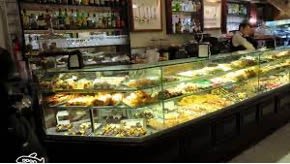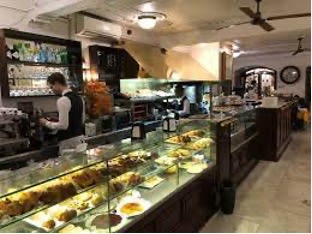Wake up and smell the coffee: immerse yourself in Lisbon's caffeinated charms
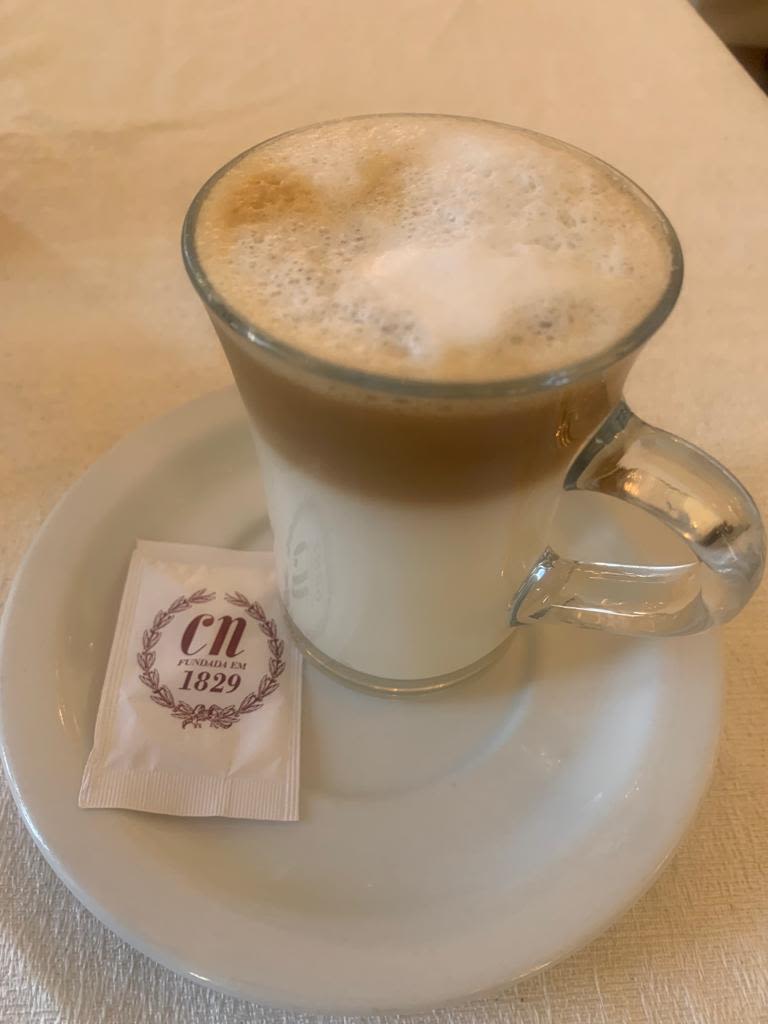
Ah, Lisbon! This vibrant city has transformed into a playground for creative souls and budding entrepreneurs from every nook and cranny of Europe.
From its charming cobblestone streets to its colourful tiled facades, Lisbon is a city that dances to its own rhythm. What truly sets this city apart is its remarkable ability to inspire and nurture the creative spirit.
But hey, did you know that the coffee scene here is buzzing too? Whether it's the steamy allure of a velvety flat white or the frosty bliss of an iced chai latte, Portugal's cafes and coffee shops are veritable temples of caffeine, eager to serve up their liquid elixirs and satisfy every sip-seeking soul.

Coffee weaves its way into the very fabric of everyday life for the average Portuguese, forming an integral part of their daily routines and cultural traditions.
While the spotlight may be shining on the new and trendy coffee houses, let us not forget the timeless charm of the old coffee establishments. These venerable spots hold a special place in the hearts of coffee enthusiasts and locals alike, carrying with them a rich history and cherished traditions.
So, grab your favourite mug and join us as we uncover the crème de la crème of Lisbon's coffee shops.
In the enchanting tale of coffee's journey, Portugal played a pivotal role in its introduction to the European continent during the 1800s. This era coincided with Brazil's status as a Portuguese colony, proudly claiming the title of the world's largest coffee producer. With Portuguese hands guiding the way, the rich coffee culture was exported to African lands, including the ex-colonies of Angola, S. Tomé e Príncipe, and Cape Verde, where the conditions proved ideal for nurturing coffee plants. Simultaneously, during this remarkable period, the Dutch were busy spreading the love of coffee across Asia.
Their explorations led them to Java, a beautiful island in Indonesia, where they introduced this captivating crop to eager palates. These endeavours marked the blossoming of coffee consumption in these diverse regions, each forging its unique coffee traditions and leaving an indelible mark on the global coffee story.


1. Martinho da Arcada

As the coffee world undergoes a delightful modernisation, it's true that some traditional recipes may fade into the background and taste palates evolve. But fear not, the oldest coffee house in Lisbon is still standing.
The Martinho da Arcada has stood the test of time. With origins dating back to the 17th century, the Martinho da Arcada has become a cherished spot for coffee lovers. This cherished café has endured through the ages, captivating generations with its enduring charm and rich history.
For over two centuries, Martinho da Arcada has been a haven for renowned figures of Portuguese literature. Well-known names from Portuguese life, such as Bocage, Amalia Rodrigues and Portugal’s most famous 20th C. poet Fernando Pessoa, were some of its usual customers. The eminent poet and writer Pessoa shines brightly. Within its walls, he found solace and inspiration, engaging in lively discussions and creative gatherings with his cherished friends
A true regular, Pessoa would arrive early, relish a delightful lunch, savour his coffee, and remain immersed in the ambience until the sun bid its farewell. Such was Pessoa's significance to the legacy of Martinho da Arcada that they honoured him by naming the very table he occupied after the literary maestro himself. While the cafe interior has undergone a modern makeover to cater to today's audience, a touch of its rustic charm still lingers, evoking a delightful sense of nostalgia.
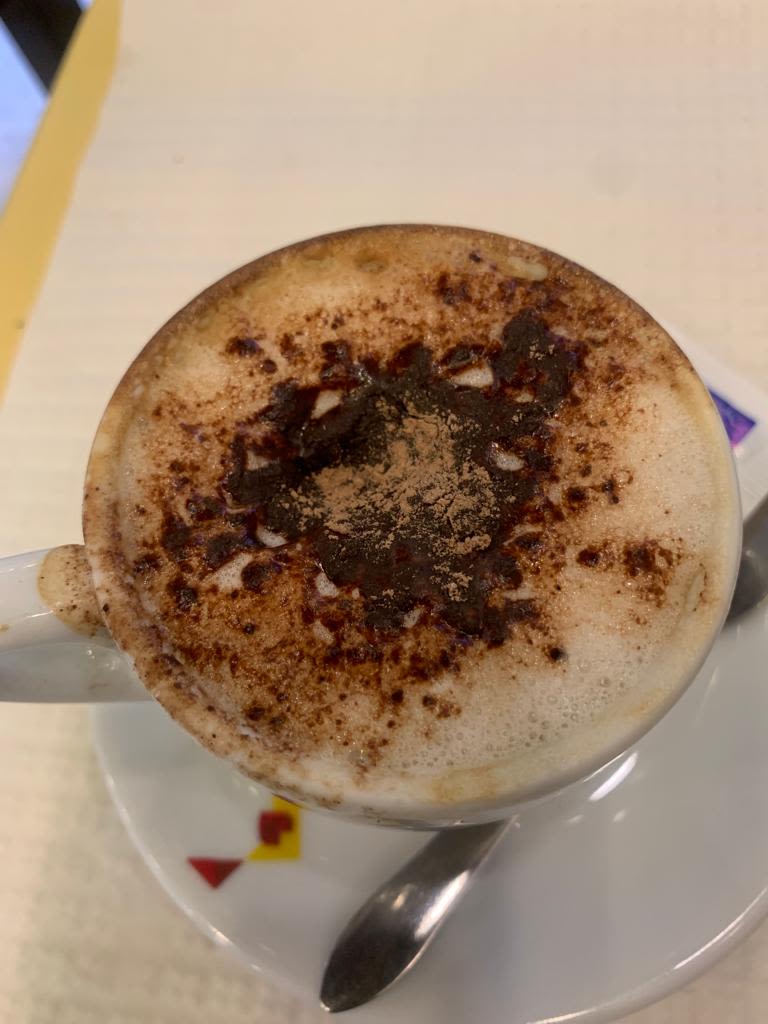
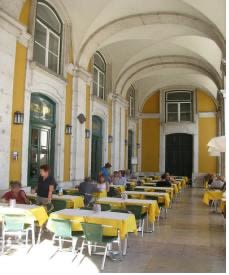
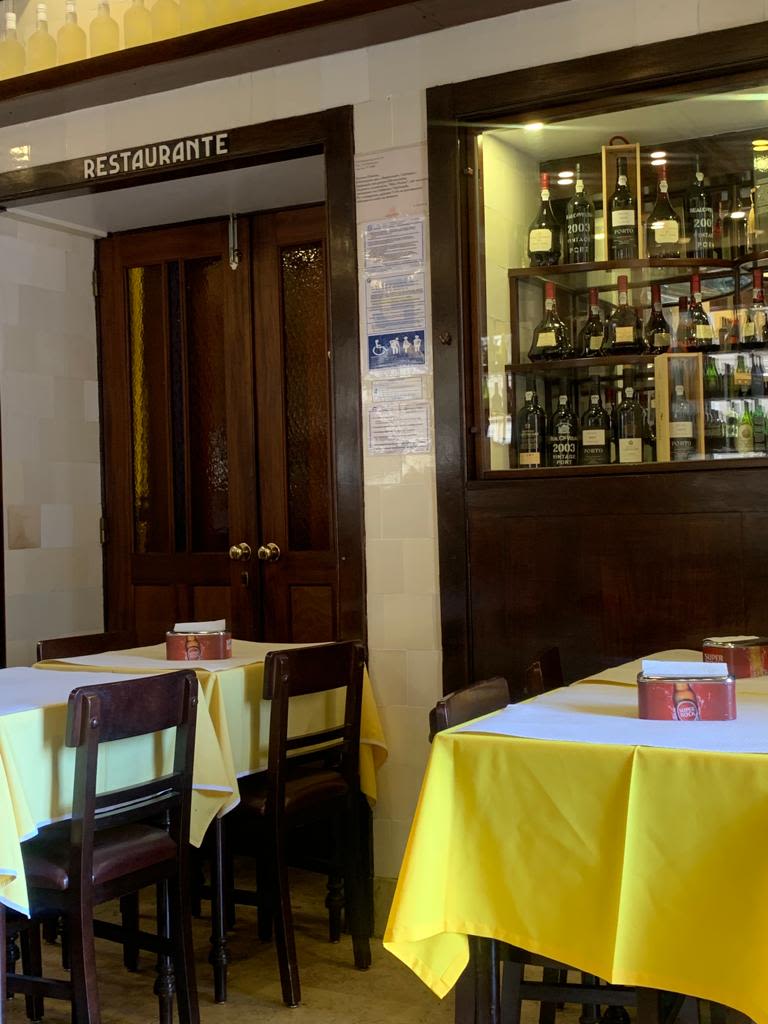
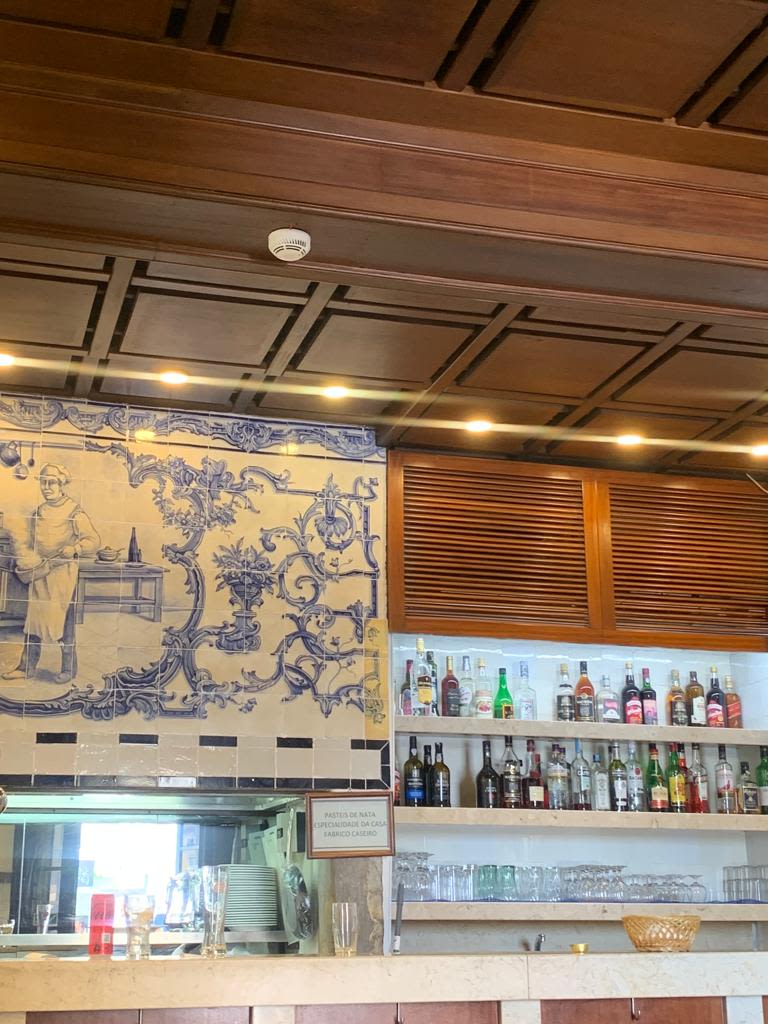
2. Confeitaria Nacional

In Portugal, sugar and coffee are closely intertwined especially when it comes to Confeitaria Nacional.
Once upon a time, in a bustling city full of charm and charisma, a café emerged that soon became the talk of the town.
Prepare to indulge your senses from the moment you step foot into this extraordinary establishment. Established in 1829, this renowned confectionery shop in Lisbon has earned a reputation as one of the city's finest, boasting international accolades and a prestigious history of serving as the official confectioner to the royal family.
Its original owner, the spirited Balthazar Roiz Castanheiro, wasted no time in crafting a reputation that attracted the city's crème de la crème. It didn't take long for this café to become the go-to spot for the elite, who couldn't resist its irresistible allure. Notably, it was within these very walls that the iconic King Cake, a beloved Christmas delicacy in Portugal, first came to life, with its original recipe imported from Paris back in 1850.
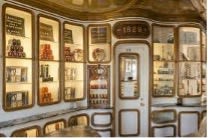
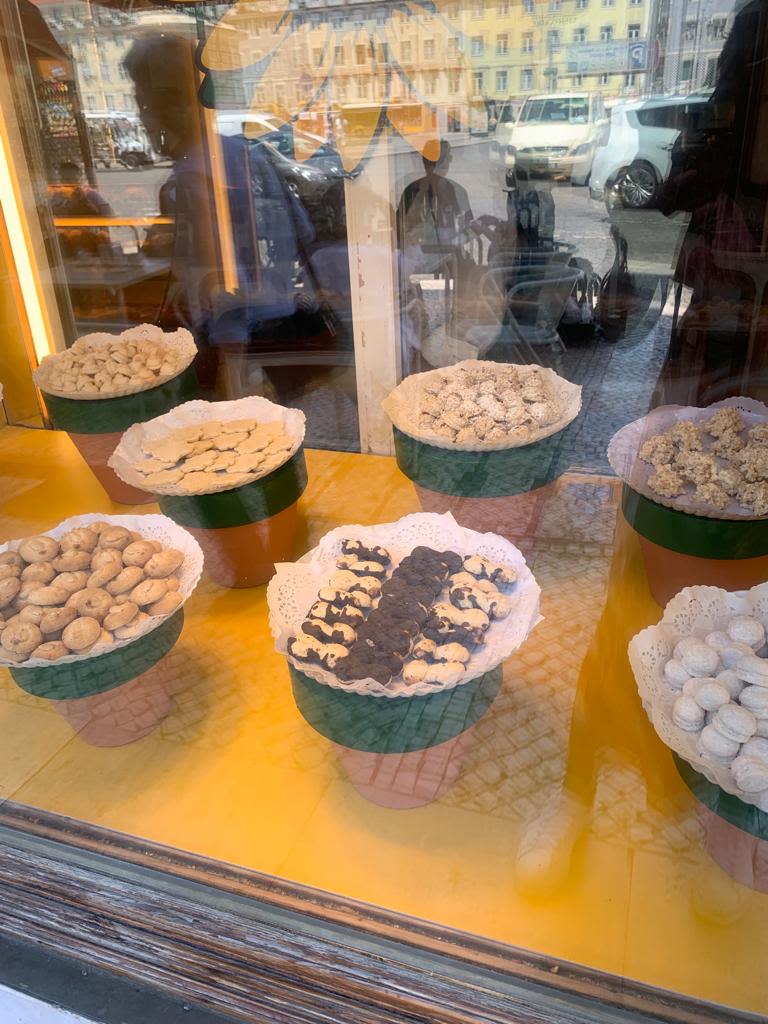

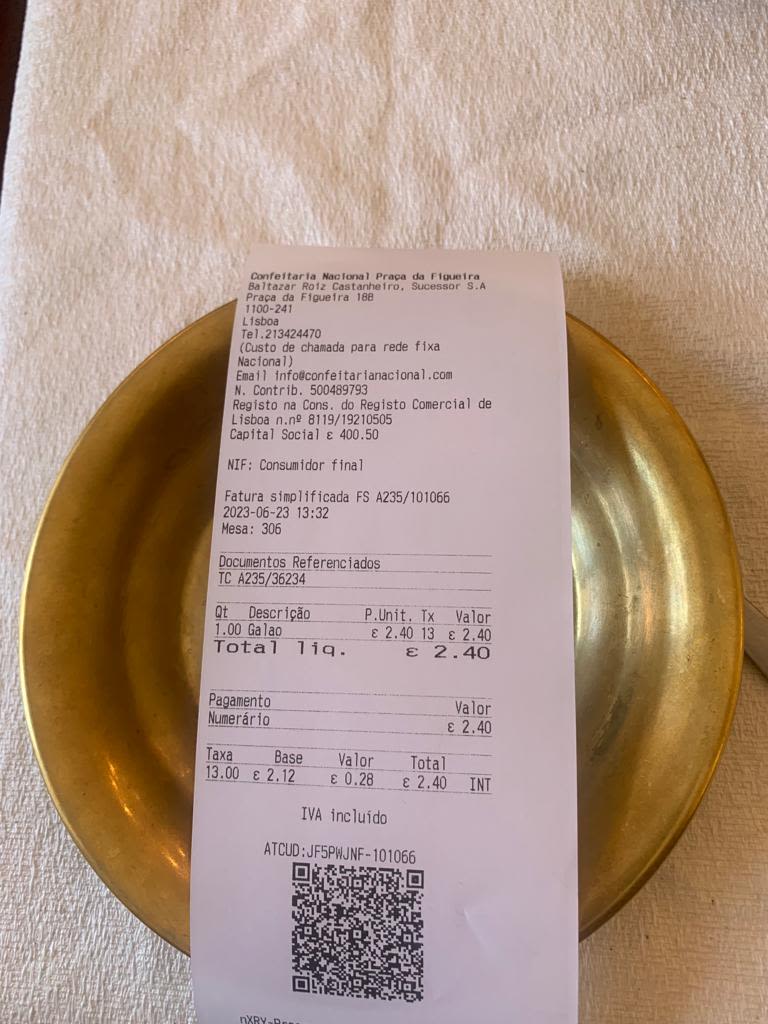
3. A Brasileira
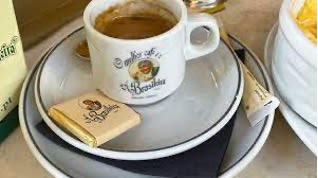
Step back in time to the enchanting origins of A Brasileira. What started as a humble shirtware shop transformed into an iconic café, serving up more than just a cup of joe. In 1905, the visionary Adriano Telles, a Portuguese emigrant with a taste for adventure and coffee, opened the doors to this extraordinary establishment.
Imagine a time when coffee was an acquired taste, its bitterness deterring many from indulging. But Adriano had a plan—he wanted to introduce people to the true essence of this beloved beverage. So, he created a place where coffee flowed freely, inviting patrons to savour its quality in small cups without any charge. His mission? To share the joy of coffee and spread its popularity far and wide.
With sumptuous decor that beckoned the most esteemed personalities of the era, A Brasileira quickly became a haven for writers, artists, lawyers, doctors, and professors. It even attracted revolutionaries who played a part in shaping Portugal's Republic in 1910.
Nestled in the heart of Chiado, this café flourished in the freedom and creativity that followed the Republic's establishment. It became a legendary haunt, fueling inspiration for the literary and intellectual elite of the time.
And let's not forget the great Fernando Pessoa, a regular at A Brasileira. In honour of this esteemed writer, a bronze statue was unveiled in 1980, capturing Pessoa sitting at a terrace table. It's not just a statue; it's a symbol of the rich intellectual circles that once thrived within these walls.
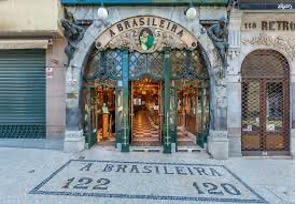
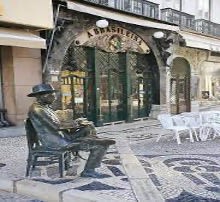
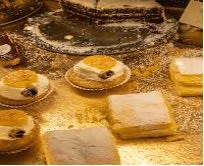
4.Pasteleria Benard
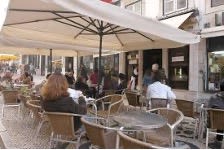
In the heart of Chiado lies Pasteleria Benard, a place which needs no introduction that has delighted the people of Lisbon for generations. With a rich history dating back to its establishment in 1868, Pastelaria Benard emerged as a renowned and esteemed tea house during the opulent 19th century, solidifying its status as an enduring emblem of Lisbon's coffee shop culture.
Even today, it remains an iconic destination that captures the essence of the city. This remarkable establishment offers patrons a captivating vista of the bustling Garrett Street, infusing their dining experience with a lively ambiance.
Beyond its distinguished pastry shop, Benard also proudly showcases its culinary prowess as a restaurant. With a diverse menu that spans both lunch and dinner, guests can indulge in an array of authentic Portuguese delicacies that pay homage to the nation's gastronomic traditions. Alongside these delectable offerings, lighter fare such as salads and quiches are thoughtfully crafted to cater to a range of tastes and preferences, ensuring a delightful dining experience for every visitor.
From the classic flat white to the refreshing indulgence of an iced chai latte, Portugal's cafes and coffee shops are veritable caffeine powerhouses, ready to fuel your every sip. And if you crave something a little more adventurous, fear not! Speciality drinks such as pumpkin-spiced lattes, turmeric-infused creations, and vibrant matcha elixirs await your taste buds, promising a sensory journey beyond the ordinary. Whether you're seeking a burst of energy or a moment of tranquility, Portugal's coffee scene has got you covered. Get ready to sip, savour, and discover the vibrant coffee culture that makes Portugal a true paradise for coffee enthusiasts.
